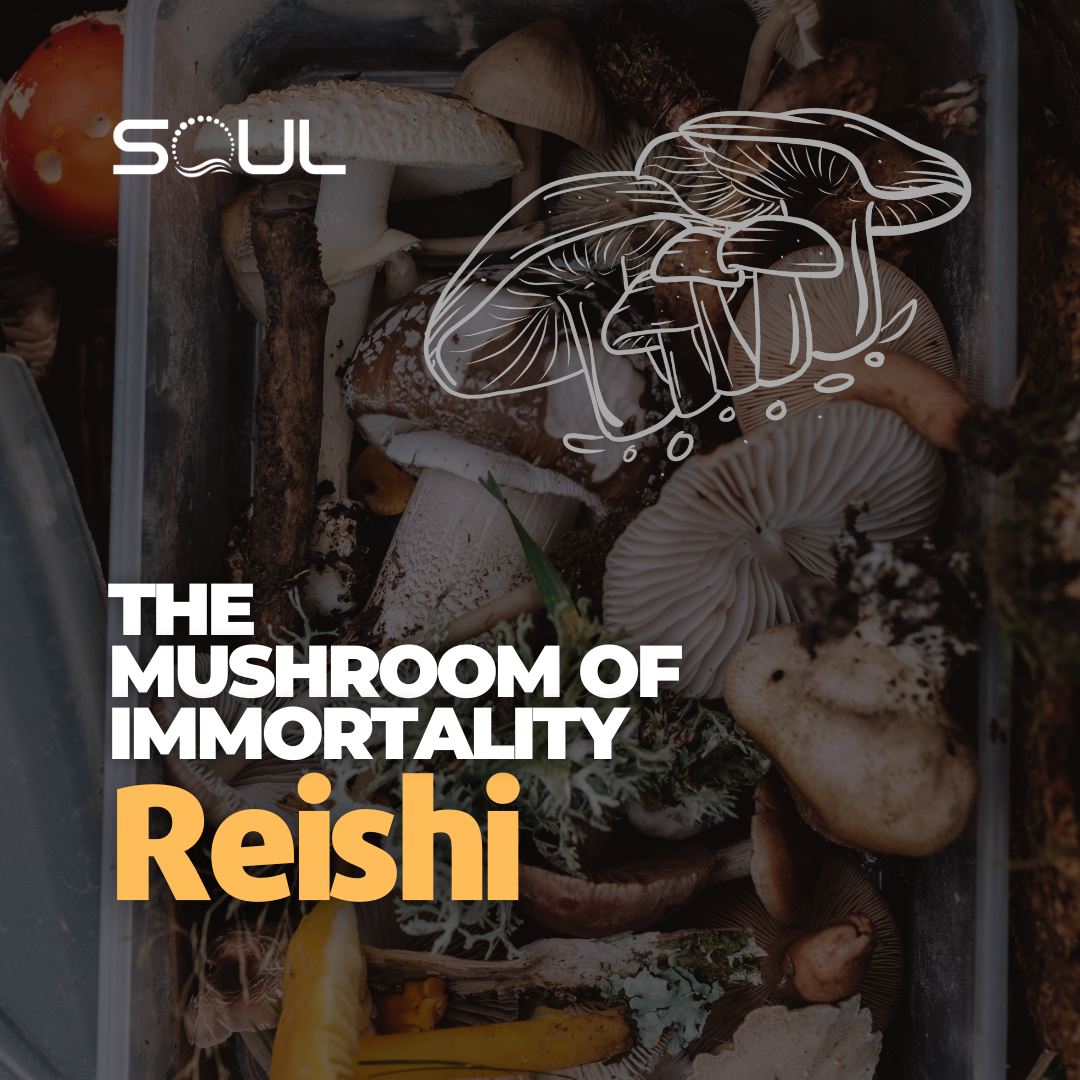If you're interested in natural remedies and herbal supplements, you may have heard of reishi mushroom, also known as Lingzhi mushroom or Ganoderma lucidum. This type of fungi has been used for medicinal purposes for centuries in traditional Chinese and Japanese medicine, and is believed to have a wide range of health benefits, including reducing inflammation, boosting the immune system, and improving cardiovascular health. But what does the science say about the potential health benefits of reishi mushroom? Let's take a closer look.
Reishi mushroom is a rich source of bioactive compounds, including polysaccharides, triterpenes, and peptidoglycans, which are thought to be responsible for its medicinal properties.
Polysaccharides are complex carbohydrates that have been shown to have immune-modulating and anti-inflammatory effects. Triterpenes are a class of compounds that have been shown to have anti-tumor and anti-inflammatory effects, as well as the ability to lower blood pressure and cholesterol levels. Peptidoglycans are a type of protein-carbohydrate complex that have been shown to have immune-stimulating and anti-tumor effects.
Reishi mushroom has been studied for its potential health benefits in a number of areas, including cancer, cardiovascular disease, and immune function. In preclinical and animal studies, reishi mushroom has been shown to have anti-tumor effects, potentially by inhibiting the growth of cancer cells and inducing apoptosis (programmed cell death). However, more research is needed to confirm these effects in humans.
Reishi mushroom has also been studied for its potential effects on the immune system. Some studies have shown that reishi mushroom may stimulate the production of immune cells, such as T cells and natural killer cells, which play a role in fighting infections and cancer. In addition, reishi mushroom has been shown to have immunomodulatory effects, meaning it can help to regulate and balance the immune system. This is important because an overactive immune system can lead to autoimmune disorders, while an underactive immune system can lead to increased susceptibility to infections and other diseases. However, again, more research is needed to confirm these effects in humans.
Reishi mushroom has also been studied for its potential effects on cardiovascular health. Some studies have suggested that reishi mushroom may have a blood pressure-lowering effect and may also reduce cholesterol levels. High blood pressure and high cholesterol are both risk factors for heart disease, which is the leading cause of death worldwide. While these findings are promising, more research is needed to confirm the effects of reishi mushroom on cardiovascular health in humans.
It's important to note that while reishi mushroom has been used for medicinal purposes for centuries and has shown promise in preclinical and animal studies, more research is needed to fully understand its potential health benefits and to determine safe and effective dosage levels in humans. It's also important to speak with a healthcare professional before starting to use reishi mushroom or any other herbal supplement, as it may interact with certain medications or have potential side effects.
Overall, reishi mushroom is a fascinating and potentially promising medicinal mushroom with a rich history of use in traditional medicine. While more research is needed to fully understand its potential health benefits and appropriate dosage levels, it is definitely an area of scientific study worth exploring further. If you're considering adding reishi mushroom to your health routine, it's always a good idea to consult with a healthcare professional to determine if it's the right choice for you.
These statements have not been evaluated by the Food and Drug Administration. This product is not intended to diagnose, treat, cure or prevent any disease.

